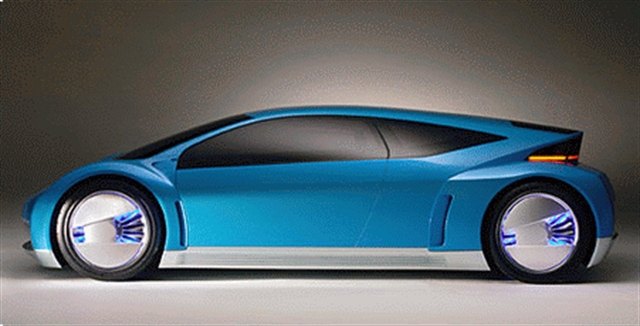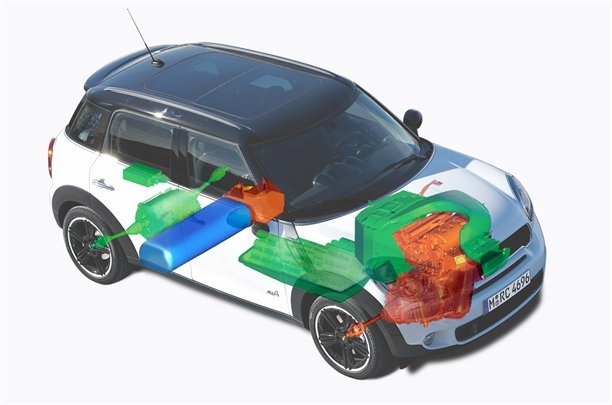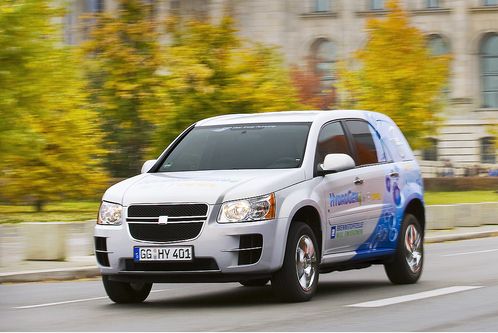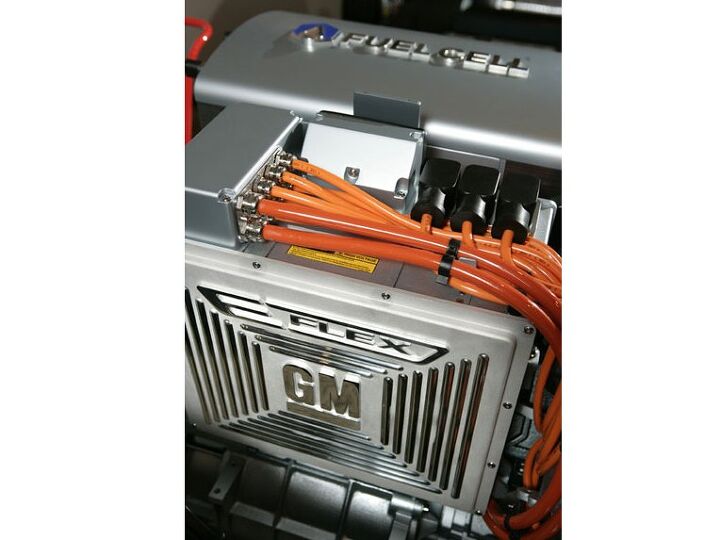#hydrogen
Toyota: $50k Hydrogen Sedan By 2015
Lithium-ion batteries aren’t the only automotive cleantech that appears to be getting cheaper. Toyota’s head of advanced autos, Yoshihiko Masuda, tells Bloomberg that the Japanese automaker has cut the cost of hydrogen fuel cell vehicles (FCVs) by 90 percent in the last five years or so. Mid-decade, Toyota’s per-car estimates for FCVs ran near a million dollars per car. With costs now closer to the $100k mark, Toyota says it plans to cut that number in half by 2015. If they can make that happen, Masuda says, a $50k hydrogen FCV will be on like Donkey Kong.
BMW's Hydrogen Hybrid
Which drive train will own the future? ICE, hydrogen, hybrid? BMW bets it will be all of the above. Autocar reports that BMW has mated a regular ICE with a fuel cell, electricity-storing supercapacitors and an electrically driven rear-axle. The reasoning behind this new type of hybrid is that BMW’s engineers believe that this power train will make the cars capable of switching to an emissions free propulsion system and switch back to ICE when needed. Now I know what you’re thinking at this point. “Cammy, aside from being the worst new writer of the year, why would anyone want to buy a car like this?” Well, the answer lies in Europe.
GM Exhumes Its Hydrogen Dreams
It’s been said many a time that the problem with hydrogen as an energy storage system for cars is that it is always the future and never the present of transportation. Indeed, hydrogen has nearly fallen of the alt-fuel radar in recent years, as present-techs like hybrid and even electric drive have matured. But the dream is not dead. The great hydrogen hope now lives with General Motors, in the form of a new, lighter-weight fuel cell which GM says will be production-ready by 2015. The new cell is 225 lbs lighter and uses one-third less platinum than the systems being tested in GM’s 30-month “Project Driveway” Equinox fuel-cell vehicles (FCVs). That leaves more platinum for trimming Escalades, and has GM thinking that real-life series production of FCVs could be possible. GM’s Charles Freese tells Automotive News [sub]:
Our learning from Project Driveway has been tremendous. The 30 months we committed to the demonstration are winding down. But we will keep upgrades of these vehicles running and will continue learning from them while we focus efforts on the production-intent program for 2015. We will continue to use the Project Driveway fleet strategically to advance fuel cell technology, hydrogen infrastructure and GM’s vehicle electrification goals
Honda Hearts Hydrogen: Let The Sunshine In!
Just when you thought hydrogen was dead, Honda comes up with a system that allows you to make homemade hydrogen, using nothing but free sunshine. In the grand tradition of hydrogen cars, the sunny technology is just not quite there yet.
London Olympics High On Hydrogen
The London 2012 Olympics promise to be a “low Carbon” affair. The London games will have everything from a low carbon Olympic flame to official energy provider EDF providing 24MW of energy from renewable resources. Even the official Olympic fleet is getting in on the “low carbon” act. What else is there to do? Right: The humble British Black Cab is getting the “low carbon” treatment. It’s coming from a source that had already been written off: Hydrogen.
Department Of Energy: Hydrogen Still The Future
Same as it ever was. Green Car Congress covers a DOE report (pdf) to the U.S. Congress on its $1.2b Hydrogen fuel cell development caucus, and the conclusion is clear: keep waiting. The DOE had harbored a shockingly naive hope that OEMs would be able to field 100k fuel cell vehicles by 2010, but the new report seems pretty clear on the chances of that happening. According to the report, “a 2008 independent study estimated that the high-volume manufacturing cost of automotive fuel cell systems (using current technology and assuming 500,000 units per year) would be $73/kW, which equates to almost $6000 for an 80-kW system. This current technology would be more than twice as expensive as internal combustion engine systems. And, based on the highest demonstrated durability to date, fuel cell systems would have a lifespan of approximately 1900 hours, which equates to about 57,000 miles and is still substantially lower than today’s estimated vehicular lifespan of 150,000 miles.” Sound familiar?




















Recent Comments